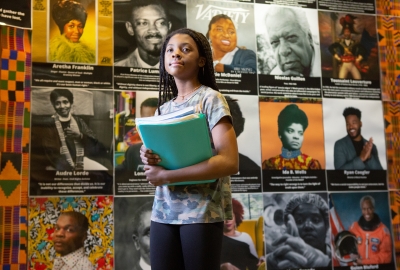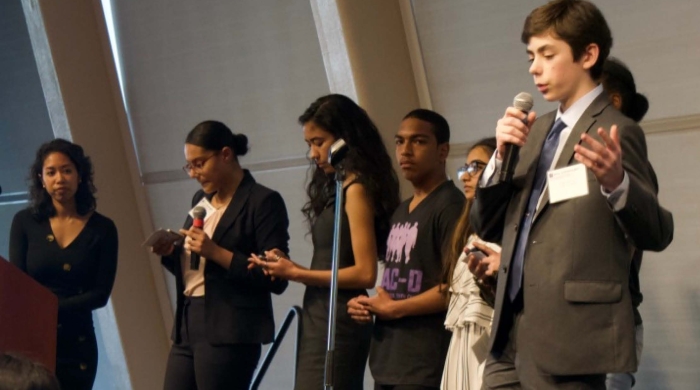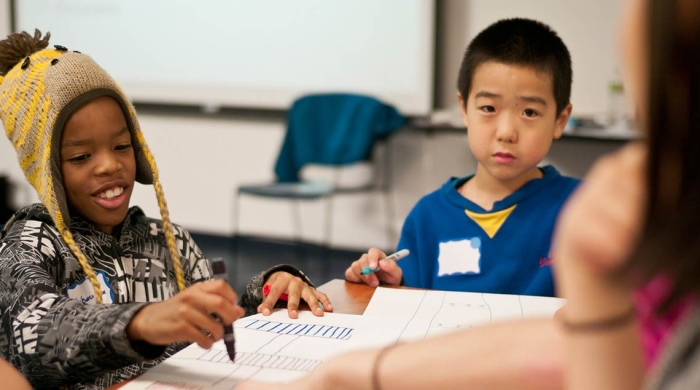
After students go through the YPAR process they now have a firm grasp of disproportionality and the educational context it sits in. Below are recommendations and suggestions to move this work forward with youth at its center.
Youth-Adult School Leadership Teams
- Most schools have a student support team or leadership team composed of administrators, teachers and staff. We believe that it is critical for students to be represented on school leadership teams to offer insight, policy suggestions, and work directly with adults to support the student body.
Youth-led professional developments for school staff
- Just as NYU Metro’s IESC adult team conducts critical professional development around racial bias and educational equity, young people who are trained are equipped to lead professional development for educators. The young people in YTAC-D presented at several local, statewide and national conferences from preservice teachers to veteran teachers to administrators and superintendents. Their knowledge and sharp analysis helped humanize and translate data in a way that was powerful for their audience. We strongly recommend that young people who go through this process offer professional development (with compensation) to school adults.
Student voice in the discipline process
- Instead of punitive measures in the discipline process, we suggest restorative approaches that are healing toward students and the greater collective. The youth in question, their peers, and families should be involved in the discipline process to ensure that this student is dealt with appropriately. Without proper care and concern, educators often slip into systematic forms of racism and bias that do not resolve the root cause of the issue. Often, youth have insight into what young people need to succeed in school settings- their voice should be centered in this process.
Turnkey the work of the youth-adult partnership group within the school
- This work is more effective when it does not stop after a youth-adult team meeting. The information should be regularly brought to the larger school community. School leadership should be involved in turnkeying the work from the youth-adult team to systemic practices within the school.
Culturally Sustaining Pedagogies
- Culturally sustaining pedagogies (see Django Paris & Samy Alim, 2017) urge teaching and learning to sustain the lifeways of communities. This is anti-racist education where teachers have undergone a process of deep understanding of the students and communities they work in. With these sets of beliefs and values, they shape curriculum that is anti-racist, sustaining, and promotes critical consciousness among students (Ladson-Billings, 1995). This is a key factor in disrupting disproportionality. Also, young people should always be at the center of curriculum. They should have influence in the teaching and learning decision making.
- A YPAR project is a learning experience teachers can be trained on and implement this type of action research into the classroom. Students develop several academic skills through research, critical literacy, and a multimodal approach that is highly engaging and relevant to their daily lived realities. YPAR can be used as a culturally sustaining pedagogical approach that we recommend teachers incorporate into their curriculum.


